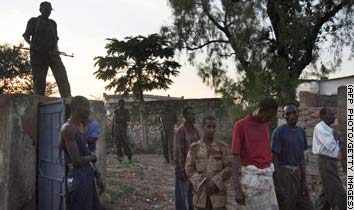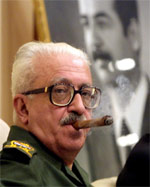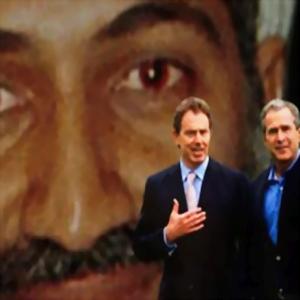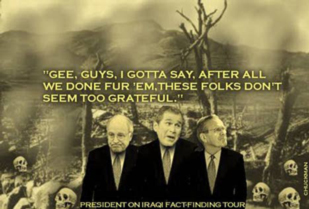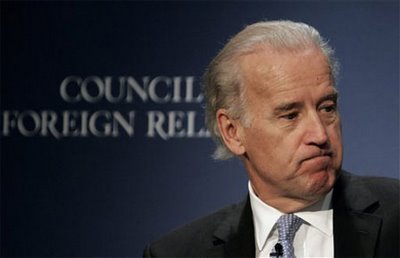by Hossein Askari
12.27.2006
The UN Security Council resolution to sanction Iran certainly is the foreign-policy coup for the Bush Administration it has been trumpeted to be—at least in the narrowest sense and in the short term. But it also undermines U.S. interests and is a liability for the United Nations and its fragile credibility.
In the run-up to the Iraq War, some ideologues charged that the United Nations consigns itself to irrelevance by failing to cooperate with and harness the clout of the world’s only superpower. But America’s continuing bleeding in Iraq has attenuated that argument by graphically demonstrating the potential cost of acting virtually alone and without legitimacy. The superpower, therefore, has its own interest in harnessing the cooperation of the Security Council and key allies—something it achieved, at least nominally, with the Iran sanctions. But what the United Nations, including the Security Council, needs to bolster its own credibility is a demonstrated independence from the United States—a phenomenon underappreciated within the confines of the Beltway.
The United Nations therefore should tow closely to the rule of law and act with consistency. By approving the sanctions on Iran, the Security Council has failed in this regard, and the resolution will surely prove counterproductive.
A Paper Treaty?
The Non-Proliferation Treaty is clear in the rights and obligations of its signatories. Signatories that were not nuclear powers when the treaty was adopted have the right to peaceful nuclear power development, including: enrichment, research and light- and heavy-water reactors. Moreover, signatories would receive technological and safety related support in their quest to develop peaceful nuclear power. In return the signatories agreed to forego nuclear weapons and to open up their facilities to IAEA inspection and safeguards. In turn, the nuclear powers agreed to reduce their nuclear arsenal and, in time, to eliminate all such weapons.
In the case of Iran, the United States has argued that Iran has lost its rights and privileges under the NPT for the following reasons: in the past it did not fully disclose its nuclear program, it is pursuing nuclear weapons, it has so much oil and gas that it does not need nuclear power and the regime in Tehran cannot be trusted and is dangerous.
It is true that Iran in the past did not disclose all of its nuclear facilities but Iran gives a credible reason for its non-disclosure: its facilities may have been attacked before they were constructed—a justification supported by Iran’s experience with international duplicity (more on this below). There is not a shred of hard evidence to support the assertion that Iran is developing nuclear weapons. Further, Iran has now opened up its facilities to IAEA inspection that go beyond legal IAEA requirements and IAEA inspectors have found traces of highly enriched uranium, which seems to have come from secondhand equipment bought by Iran.
And in wake of the Iraq War, the world cannot again believe U.S. assertions on the basis of hard evidence “that cannot be disclosed for fear of harming confidential sources.” Iran’s reserves of oil and gas are indeed expansive but this is totally irrelevant to the legal interpretation of the NPT. Interestingly, the United States did not criticize and threaten the Cooperation Council for the Arab States of the Gulf (GCC)—consisting of six countries with one-third of Iran’s population and about three times Iran’s oil and gas—for its announcement earlier in December to develop peaceful nuclear power. This naturally leads to the fourth U.S. justification for taking away Iran’s right to peaceful nuclear power: that the regime in Tehran is dangerous. But that rationale would, again, contravene the treaty, which does not disqualify certain regimes from its provisions.
Proliferation Posturing
Why was Iran’s nuclear program under the Shah acceptable, but not under the current regime? Doesn’t the right of peaceful nuclear power belong to a people, Iran, as opposed to a particular regime, a shah or a mullah? Moreover, do not regimes change over time, for good or for bad? Would the United Nations allow peaceful development with a regime subjectively considered “good” and then approve of the destruction of facilities when a “bad” regime comes to power? Is Saudi Arabia’s regime a “bad” regime? If so, on what grounds? What should the world community do about a country (say, Pakistan) that has nuclear weapons and some consider to be ruled by a “bad” regime? Does a so-called bad regime become, by virtue of some policy alchemy, an accepted nuclear power once it has acquired the weapons and a delivery system?
Finally, have the nuclear powers kept up their end of the bargain to reduce and eventually eliminate their nuclear weapons as called for in the NPT? The simple answer is no. While that standard was upheld during the Reagan era—as both the United States and the Soviets reduced their nuclear arsenals—under the Bush Administration the United States is building new classes of nuclear warheads; China is still increasing the number of its nuclear weapons; Britain recently announced a new nuclear weapon program; and France has been building new weapons. The United States is affording India, a non-signatory to the NPT, all the privileges of signatories, although India has developed nuclear warheads outside the NPT and will not have to open all of its nuclear facilities to IAEA inspection.
In short, the nuclear powers clearly have not adhered to the NPT and the treaty did not grant the Security Council, or any of its members, the right to deny non-nuclear signatories their rights and privileges on the basis of their oil, gas or coal reserves—or on the acceptability of their regimes.
If the Bush Administration is sincere in its quest for global non-proliferation, and is not simply trying to leverage legitimate concerns on proliferation to single out a regime it dislikes, then why did it vote against two resolutions, introduced by Arab countries, at the IAEA annual meeting on September 21? The resolutions, both of which were supported by Iran, called for converting the Middle East into a nuclear-free zone, and for all Middle East countries to accept IAEA safeguards. The United States and its allies defeated the first resolutions by a vote of 45 to 29, in favor of taking no action. The second resolution passed by a vote of 89 to 2, with the U.S. and Israel being the odd couple.
A Gang of Nations
Given Washington’s clear double standards when it comes to nuclear issues, the United Nations stands to further undermine its credibility and relevance by obliging arbitrary and contradictory U.S. policy. Indeed, the United Nations has already damaged itself in this regard in recent history. Certainly, there is a strong sense of that damage in Iran.
When Iraq invaded Iran in September of 1980, violating the most sacred chapter of the United Nations Charter, the Security Council was largely silent, glaringly demonstrating the council’s inadequacy in terms of defending international law—not to mention decency. When the West supplied Iraq with internationally outlawed chemical weapons and these weapons were used to kill and disable tens of thousands of Iranians, the Security Council, again, did very little. The memory of the Iran-Iraq War and the attendant inaction of the U.N. and the actions of the U.S. are still an open wound in the minds of Iranians over the age of thirty-five.
The United Nations, including the council, would bolster its legitimacy and effectiveness by demonstrating a willingness to break with the past—and Washington. This is the U.N.’s pragmatic and moral imperative.
And in examining the U.N. sanctions recently leveled on Iran, it is important to look at their pragmatism. Certainly, the sanctions are purely symbolic. The freezing of the assets of a few individuals and corporations does not exactly handcuff the regime. The banning of trade in nuclear materials, exempting that associated with the Russian reactor under construction in the south of Iran, reflects only the status quo. In the final analysis, the adopted sanctions will have little or no effect on Iran. More importantly, economic sanctions rarely force regimes to change their objectionable policy.
Interestingly, the effectiveness of sanctions is directly tied to their perceived legitimacy. At a minimum, in order for sanctions to have any prospect of being effective, the general population of the sanctioned country must oppose the policy that is deemed objectionable by the sanctioning parties; the adopted sanctions must cause sufficient pain on the population of the sanctioned country to cause them to force a change in policy or a regime change; or the adopted sanctions must cause sufficient pain directly on the regime until it changes its objectionable policy. The adopted U.N. sanctions on Iran do not even remotely fulfill any of the above conditions, which in turn do not guarantee the success of sanctions. And the council’s actions against Iran’s nuclear program will serve to bolster the Iranian people’s support for the program and regime.
Whether Iran has had its heart set on enriching uranium to weapons grade, I don’t know. But what is clear is that Iran feels insecure after the U.S.-led support of Saddam Hussein during the Iran-Iraq War (resulting in the death of about 500,000 Iranians, or over 1 percent of the population), the U.S. occupation of Iraq and Afghanistan, the expansion of U.S. bases surrounding Iran from all sides and the constant rhetoric calling for regime change in Iran. Even if the mullahs wanted to suspend enrichment, they have been politically backed into a corner by Washington and could not possibly do so now.
The only conceivable peaceful solution is granting Iran’s full legal rights under the NPT to develop a peaceful nuclear program, in return for the most intrusive inspections that go beyond anything that any other country has a agreed to up to now. This system could, in turn, be used for all other countries that pursue peaceful nuclear programs, in turn re-enforcing nuclear non-proliferation—Washington’s articulated goal, after all.
Hossein Askari is Iran professor of International Business and International Affairs at George Washington University.
LinkHere

 Thursday, 28 December 2006
Thursday, 28 December 2006








